Trump To Face Video Interview on Monday With Probation Officer Preparing a ‘Sentencing Report’ for Judge, Who Could Choose Prison
Trump, accompanied by his attorney, will submit to the interview with a New York probation officer assessing various aspects of his life, including his mental and physical health, possible addiction issues, and criminal history.
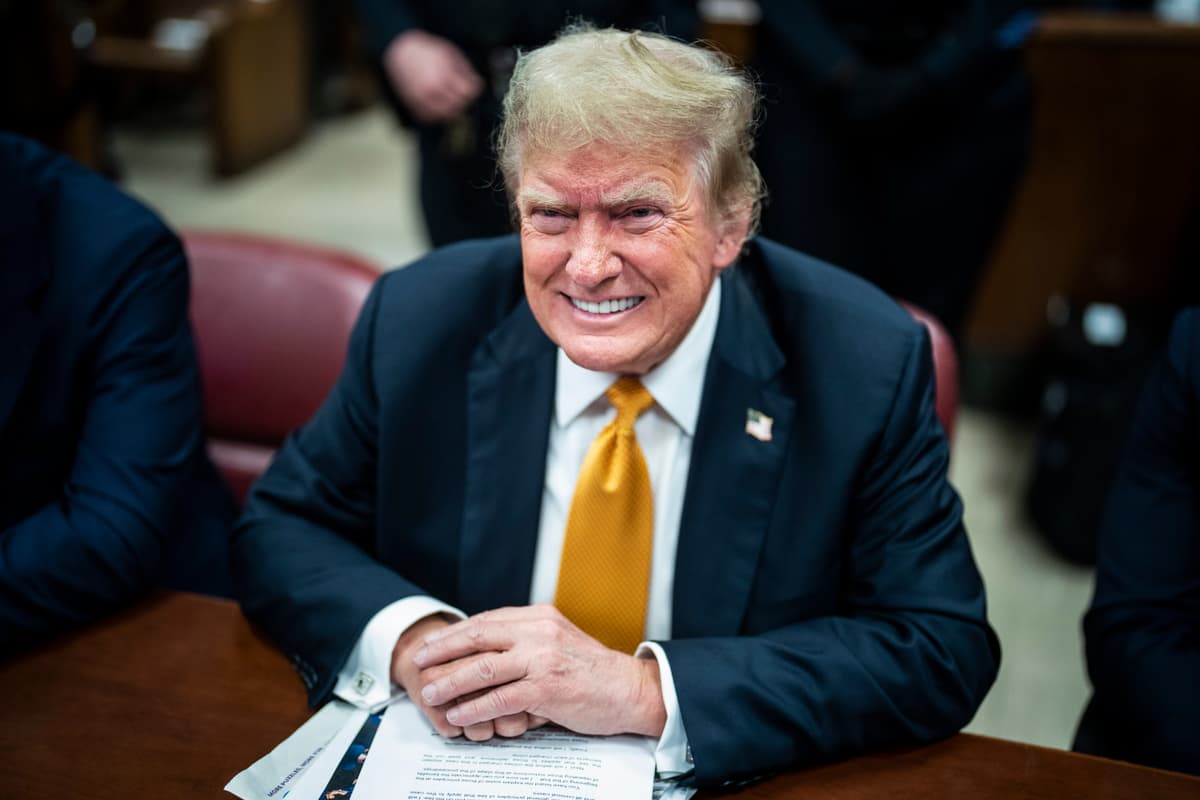
President Trump will have his probation interview on Monday, multiple news organizations are reporting, which, among other factors, the presiding trial judge, Juan Merchan, will use to determine the sentence he will impose on Trump on July 11 for his conviction in the hush-money case. In the meantime, a Yale Law School professor, Jed Rubenfeld, proposed in his podcast that Trump should sue the district attorney in federal court to stop the conviction.
Trump is scheduled to sit for a virtual interview on Monday with a New York City probation officer from his home at Mar-a-Lago. His attorney, Todd Blanche, will join. The interview will not be held over Zoom, but over “a special virtual network with added security measures,” and “the interviewer will be a female,” according to NBC News, who first reported that the interview will take place.
A former commissioner of the New York City Department of Corrections and Probation, Martin Horn, told NBC News that it is “highly unusual for a pre-sentence investigation interview” to be held virtually and not in-person. But Mr. Horn speculated that an in-person interview, held on the 10th floor of the Manhattan criminal court, where Trump’s trial took place, with “Secret Service and press following him,” could also be “very disruptive” and possibly problematic for other defendants, who would suddenly be thrown into the public spotlight of the media.
It is also possible, but not verified, that Trump could have asked for a virtual interview, because he may not have wanted to return to the courthouse, where he attended the daily proceedings, as is required for defendants in criminal cases, every day for six weeks.
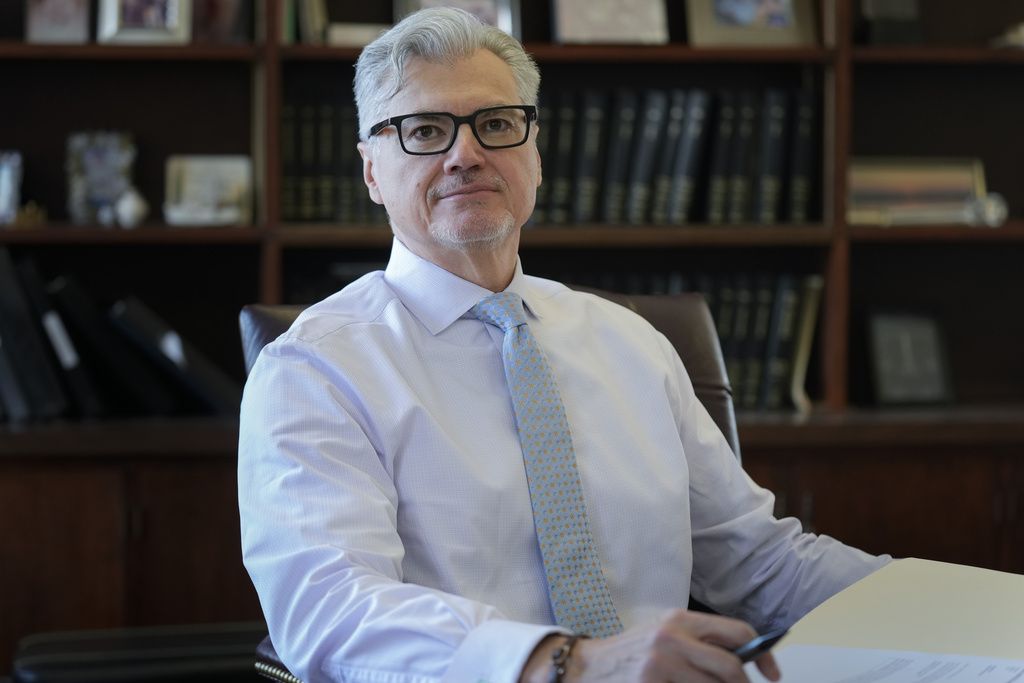
The trial, during which 22 witnesses testified and roughly 200 documents were submitted as evidence, started with jury selection on April 15 and concluded, when the jury reached its guilty verdict on May 30.
The Manhattan district attorney, Alvin Bragg, charged Trump with 34 felony counts of falsification of business records in a scheme to interfere with the 2016 election. The prosecution alleged that Trump ordered his former lawyer and current nemesis, Michael Cohen, to wire a $130,000 hush-money payment to the adult film star Stormy Daniels, whose real name is Stephanie Clifford, on the eve of the presidential election, to buy her silence about her claim that she had a single sexual encounter with Trump at a celebrity golf tournament at Lake Tahoe ten years earlier.
The prosecution further accused Trump of disguising his reimbursement to Cohen as a legal fee, when he paid him back in 2017, after he had assumed the presidency. Trump said he never had sex with Ms. Clifford and has denied all the charges. Nonetheless, the jury found Trump guilty of all 34 felony counts, making him the first former president in the history of America with a felony conviction.
The former president awaits sentencing by the judge on July 11. Under New York law, the class “E” felonies Trump faces are punishable by up to four years in prison per offense and-or a fine of up to $5,000. As Trump has been found guilty on all 34 counts, meaning each falsified record, which included invoices, ledger entries and checks, the highest, and most unlikely outcome would be $170,000 in fines and 136 years in prison. More moderate punishments, such as supervised parole or house arrest, are also on the table.
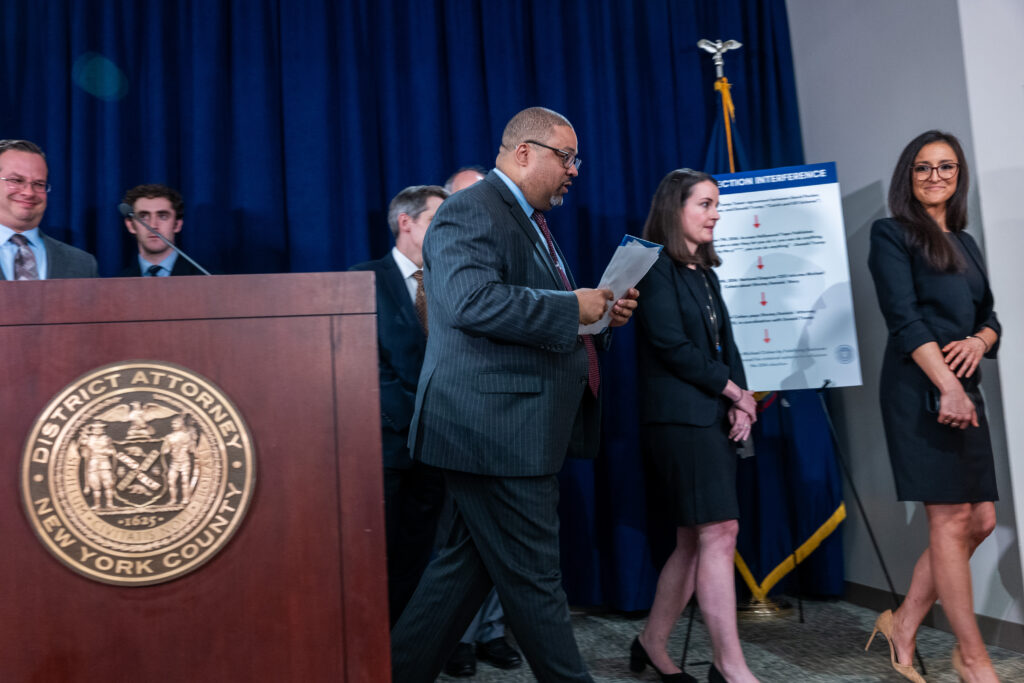
Legal scholars say a typical defendant convicted of these offenses would not face prison. But Trump is no ordinary defendant and everything about this case is extraordinary. In the last year, the former president has already been handed, by Manhattan judges and juries, a half a billion dollar fine for civil fraud, and another $83.3 million judgment for slandering the writer E. Jean Carroll who accused him of raping her in the 1990s.
Judge Merchan will consider many different factors when he decides Trump’s sentence for the hush-money case. Besides the charges, evidence and testimonies, the parties will submit sentencing recommendations. Trump’s defense attorneys will file theirs by June 13, the prosecution then answers with their recommendation by June 20 (Mr. Bragg has yet to say if his office will ask for Mr. Trump to be incarcerated). There will also be oral arguments made during the sentencing hearing on July 11.
One important factor that will weigh on sentencing is that Trump has no criminal record, and his upcoming interview will inform the judge on “Trump’s social and criminal history, financial resources, history of mental health, physical or addiction issues as well as to assess his living situation,” Mr. Horn told NBC News.
Trump’s age, of 77, could also be a mitigating factor. But age did not stop a Manhattan judge from sentencing his longtime chief financial officer, Allen Weisselberg, 76, to five months at Rikers Island, the notorious jail in the East River. One of Trump’s top White House aides, Peter Navarro, 74, is also currently at a federal prison in Florida for defying a Congressional subpoena over the January 6 riot at the Capitol.
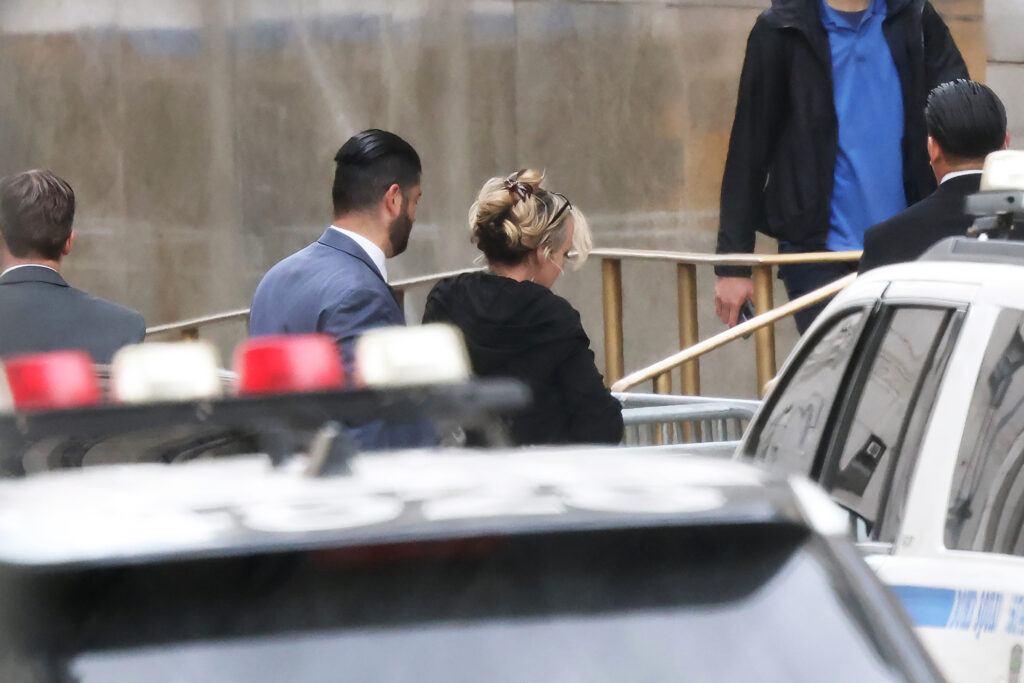
In developing her sentencing report, Mr. Horn further explained that the probation officer has the option to speak to people who live with Trump. If the officer deems it necessary, she could also “conduct follow-up interviews.” Judge Merchan will then receive the final written report.
Trump’s attorneys will explain to Trump, if they have not already, the “Collateral Consequences,” also called “Invisible Punishments,” he faces with a felony conviction, which vary by state, such as potential loss of voting rights, prohibition from owning a firearm, and difficulty getting loans or finding employment.
But the law professor at Yale, Jed Rubenfeld, laid out an entirely different path for Trump. Mr. Rubenfeld, who along with his Yale law professor wife, Amy Chua, came under siege at the far left law school for the couple’s perceived conservative sympathies due to their friendship with Brett Kavanaugh, was accused in 2018, around the time of Justice Kavanaugh’s contentious confirmation hearings, of “unwanted touching and attempted kissing” of female students, which he forcefully denied. He was suspended from teaching for two years.
Now, Mr. Rubenfeld is again stirring the pot, saying on his podcast, “Straight Down the Middle,” that Trump is technically not a convicted felon until he will be sentenced on July 11.
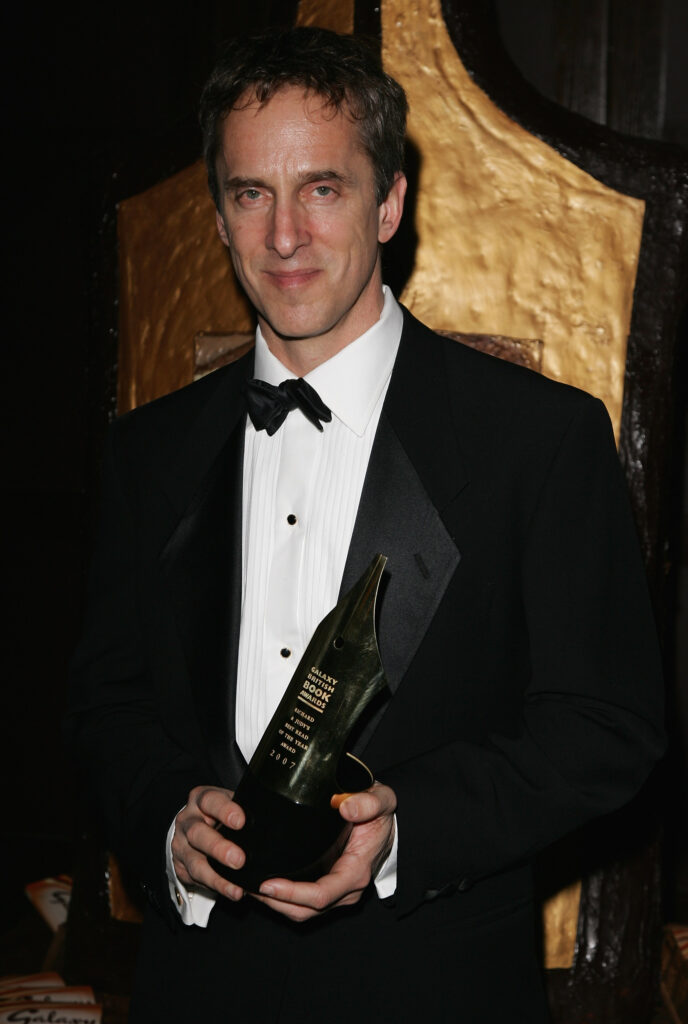
Citing state law, Mr. Rubenfeld said, “You’re not a convicted felon because of a jury verdict. You’re not convicted unless the judge enters a judgment of guilt against you… The judge still has the power… to throw out that verdict and enter a judgment of acquittal.” But he added that Judge Merchan will likely “enter that judgment of guilt against Trump on the same day that he issues sentencing.”
In other words, the law professor is merely pointing out that one should not call Trump a convicted felon yet, but instead say that he has been convicted of a felony by a guilty jury verdict.
It appears to be a banal statement, but the professor adds that in this short window, during which the conviction is not, so to speak, carved into stone, Trump could choose to sue the Manhattan district attorney in federal court and demand that the verdict be placed on hold, until the matter is reviewed for its constitutionality.
Trump would have to ask a federal judge, Mr. Rubenfeld said, “for an emergency temporary restraining order, halting Judge Merchan from entering that judgment of guilt until the federal courts have had an opportunity to review and rule out the serious constitutional arguments that exist,” he explained.
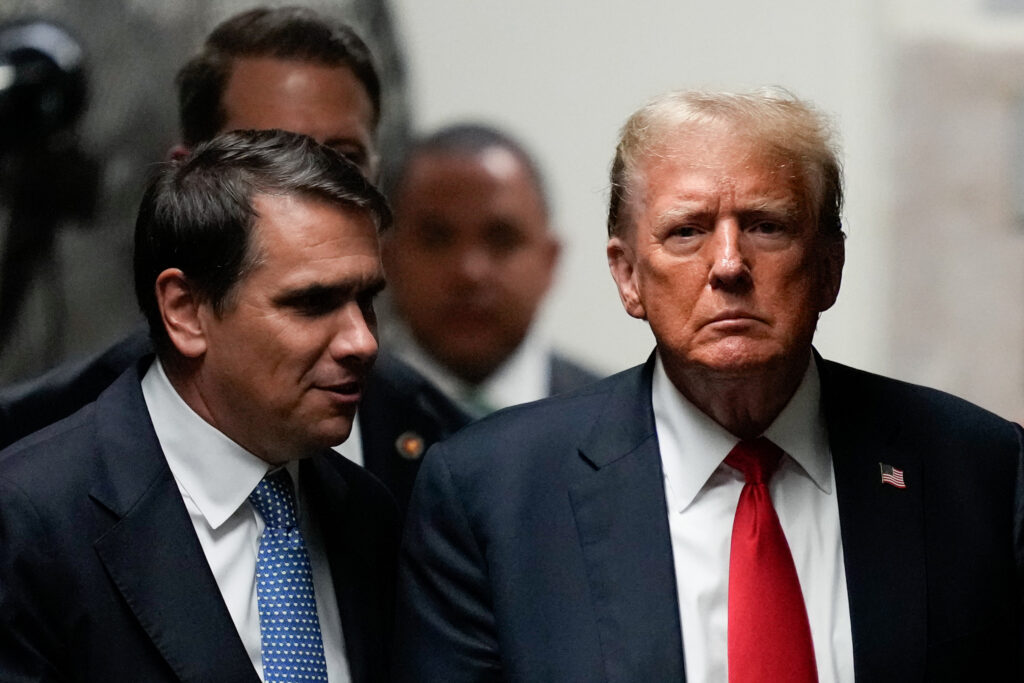
The legal arguments Mr. Rubenfeld suggests could be presented to a federal court are the same that the defense and legal commentators have discussed since Trump’s historic indictment last year: that the judge and the district attorney are biased because they are Democrats and Trump is the Republican Party’s presumed presidential nominee, and that the charge is based on what many call a “novel legal theory.”
But this “novel legal theory” is, also according to the New York Times, “a staple” of Mr. Bragg’s office’s white-collar crime work. Mr. Bragg elevated what would usually be a misdemeanor to a felony conviction, because he combined two crimes. Falsification of business records is a misdemeanor, but committed with “the intention to commit or conceal another crime,” it turns into a felony.
The “novel” aspect of Trump’s charge is, as the New York Times details in their 2023 article, the fact that Mr. Bragg did not reveal this second crime to the public right away.
Mr. Rubenfeld suggests that Trump’s defense should raise this issue with a federal court immediately.
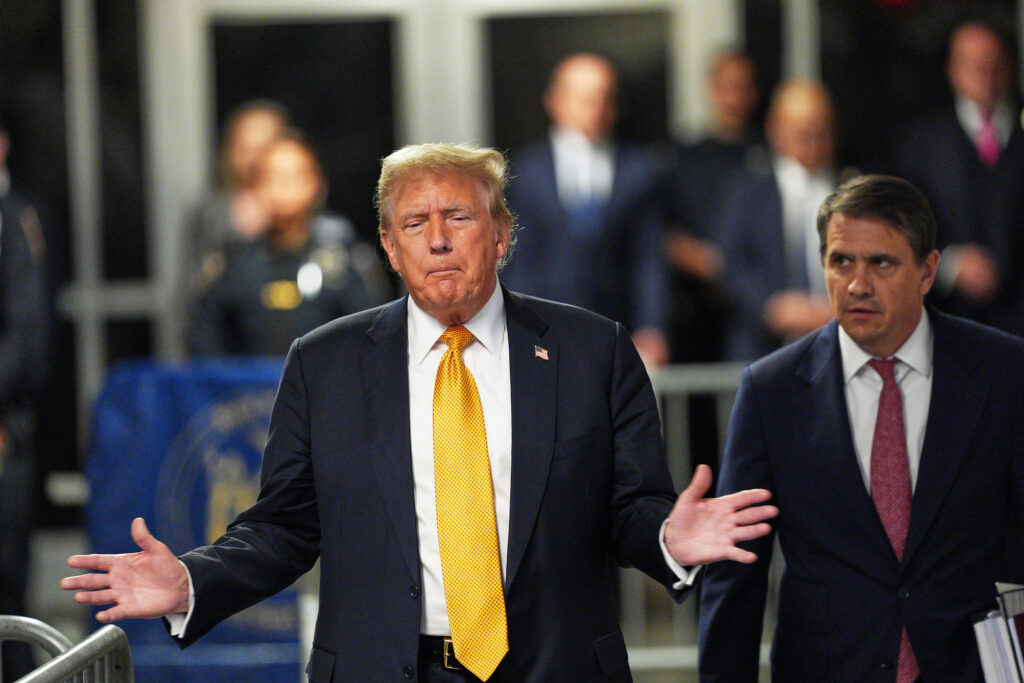
“Going after, criminally, a former president of the United States and somebody who is running for president now, that’s a very bad look, “ Mr. Rubenfeld explained. “It’s an especially bad look when the folks bringing the case and the judge deciding it are members of the opposing political party.” He added that, “it’s an even worse look when the crime is so unclear that the state is hiding the ball about what the actual charges are right up through the trial and indeed into the trial.”
Following the advice from Mr. Rubenfeld may be risky, though. If Trump decides to sue the judge and the district attorney in federal court before the sentencing, and is unsuccessful with his request for an “emergency temporary restraining order,” it could impact the sentence the judge will impose on him, because it further underscores Trump’s lack of remorse.
The federal court will most probably take into consideration, among other evidence, an order published by the judge on February 15, two months before the trial began, in which he addresses the “other crime” in detail and answers the defense’s arguments that the indictment brought by the prosecution “fails to make out the element of ‘intent to commit another crime or to aid ot conceal the commission thereof,’” the judge wrote in his order.
“Defendant further argues that the four theories set forth by the People to satisfy the ‘other crime’ element, are not viable and therefore cannot serve as ‘object offenses’ under the statute,” the judge stated, repeating Trump’s argument that the four other crimes that the prosecution alleged did not meet the criteria for the law.
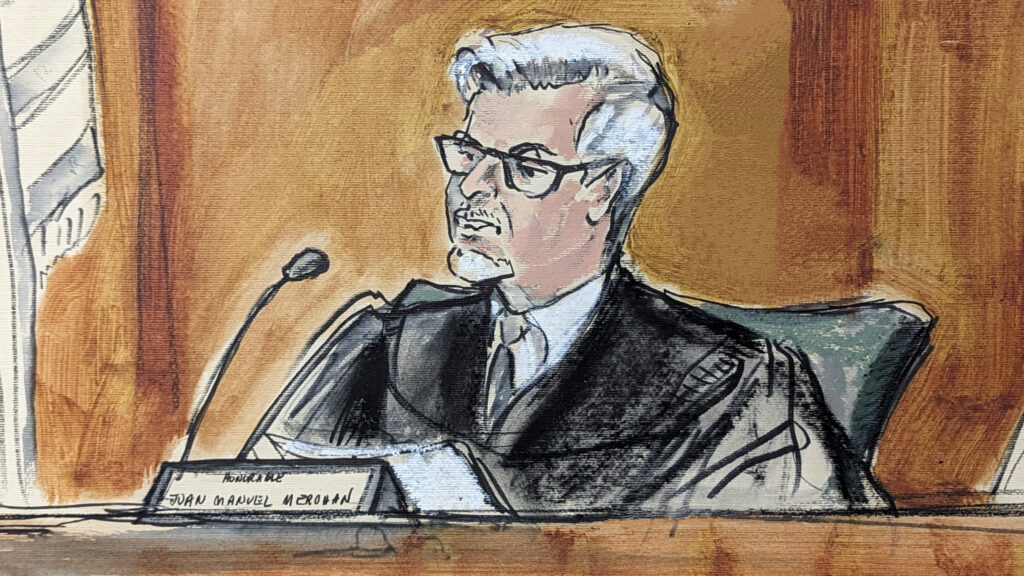
Judge Merchan explained that these four theories, brought forth by the Manhattan district attorney, are violations of the Federal Election Campaign Act, tax law, and New York Election Law.
The fourth allegation is that Trump caused other people to commit crimes. “In the course of carrying out defendant’s scheme, several of the participants made and caused false entries in the business records on multiple entities in New York,” the judge wrote, referring to, for example, the mischaracterization of the account Cohen opened in order to wire the hush-money payment to Ms. Clifford.
In other words, the “other crimes” have been known to Trump’s defense team and to the public for months. Thus, the argument that Mr. Bragg somehow kept the defense in the dark may not convince a federal court.
Trump has said that he will appeal the verdict. “President Trump and his legal team are already taking necessary steps to challenge and defeat the lawless Manhattan DA case,” a Trump campaign spokesperson, Steven Cheung, said in a statement on Saturday.
On Friday, Trump posted on his social media platform, Truth Social, comments about the hush-money trial by Rich Lowry, the National Review editor, who wrote, “Yes it was rigged.”
Mr. Lowry wrote that, “The Alvin Bragg trial was everything that Trump warns about … The charges were rigged, the prosecution’s presentation of the case was rigged, the judge’s management of the case was rigged, the gag order was rigged, and the instructions to the jury were rigged.”

